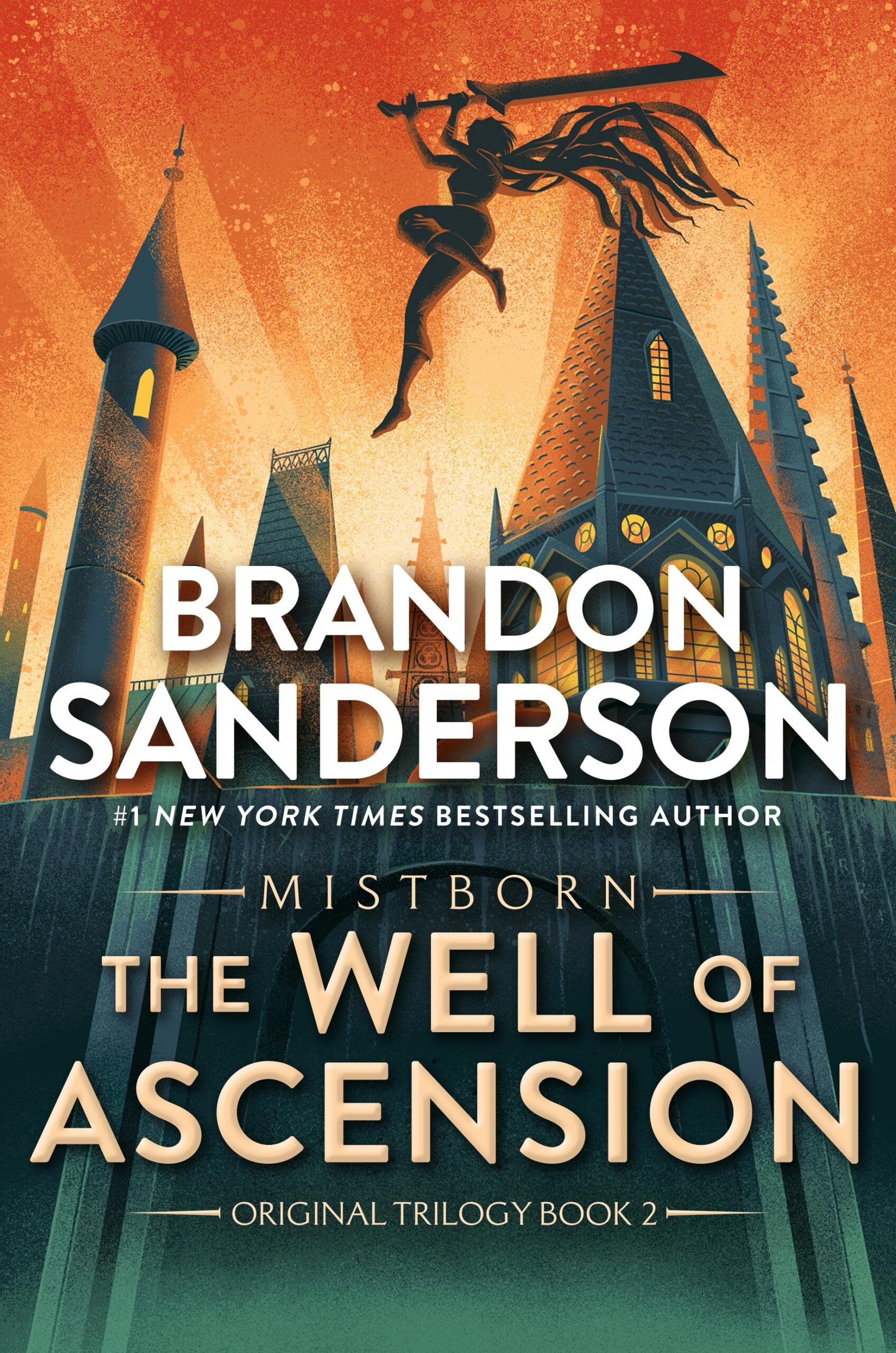
The Well of Ascension
3
by Sanderson, BrandonElend, the king of a fledgling kingdom, grapples with the frustrations of governing through a parliamentary council. Despite his extensive knowledge of political theory and economics, he finds it challenging to achieve consensus among the Assembly’s twenty-four members. As he drafts a proposal to delay any rash decisions regarding his father’s approaching army, he reflects on the divergent factions within the Assembly—some advocating surrender, others peace or attack. The weight of leadership and the looming threat of Straff’s forces leave him exhausted and uncertain, even as he clings to his belief in a fair and stable government.
The chapter highlights Elend’s internal struggle as he balances idealism with practicality. He considers exploiting a recent assassination attempt on Vin to sway the Assembly’s opinion but worries it might backfire. His momentary doubt about the Lord Ruler’s authoritarian rule underscores the tension between stability and freedom. Yet, he reaffirms his commitment to a balanced system—a symbolic monarchy paired with a representative Assembly—despite the immediate challenges threatening their survival.
Vin’s presence looms in the background, both as a comfort and a reminder of their precarious situation. Her nightly patrols and the assassination attempt serve as a stark contrast to Elend’s political deliberations, emphasizing the physical dangers they face. Elend’s fondness for her briefly lightens his mood, but the gravity of their circumstances quickly overshadows it. The chapter paints a vivid picture of their shared burden, with Vin protecting the city from shadows while Elend battles bureaucratic inertia.
The narrative closes with Elend returning to his proposal, determined to forge ahead despite exhaustion and doubt. The Lord Ruler’s death, referenced in the final lines, lingers as a symbol of both liberation and uncertainty. The chapter masterfully intertwines political tension, personal relationships, and the lingering scars of a fallen empire, setting the stage for the struggles to come in a world still grappling with its newfound freedom.
FAQs
1. What are the main challenges Elend faces in governing Luthadel, and how do they reflect the tension between theory and practice in political leadership?
Answer:
Elend struggles with implementing his idealistic political theories in practice, particularly with the frustrating inefficiency of the parliamentary council. Despite his extensive knowledge of political theory and economics, he finds it challenging to get the 24-member Assembly to agree on critical matters like responding to Straff’s approaching army. The chapter highlights how theoretical governance models (like representative democracy) face practical hurdles in crisis situations, where quick decisions are needed. Elend’s contemplation about the Lord Ruler’s effective—if oppressive—rule underscores this tension between ideal systems and real-world functionality during threats (shown through his crossed-out proposals and internal doubts).2. How does the looming threat of Straff’s army influence Elend’s political strategy and the dynamics within the Assembly?
Answer:
The approaching army creates factional divisions within the Assembly, with groups advocating surrender, peace treaties, or immediate attack. This external threat amplifies governmental dysfunction, as Elend races to draft a proposal preventing rash actions before he can negotiate. The crisis reveals how security threats test democratic systems—some Assembly members grow more willing to surrender to authoritarian rule for stability. Elend considers leveraging Vin’s assassin encounter to influence opinions, showing how he’s learning to navigate realpolitik despite his theoretical preferences. The campfires visible from his balcony serve as a constant reminder of the ticking clock for political resolution.3. Analyze the symbolic significance of Vin’s rooftop presence during Elend’s political struggles. How does this detail reflect their relationship and respective roles?
Answer:
Vin’s scuttling footsteps overhead symbolize her parallel but distinct role as Elend’s protector and enforcer. While he grapples with bureaucratic challenges, she operates in the physical realm of danger—a dichotomy reflecting their complementary strengths. Her unseen vigilance contrasts with Elend’s visible frustration at his desk, mirroring how she safeguards the stability he tries to govern. This moment also hints at their emotional bond (Elend smiles fondly), yet emphasizes their separation of duties: Vin handles immediate threats so Elend can focus on long-term governance. Their unspoken coordination becomes a microcosm of how the fledgling kingdom balances force and policy.4. Why does Elend momentarily question whether the Lord Ruler’s autocratic system had merits, and what does this reveal about his character development?
Answer:
Elend’s fleeting doubt about the Lord Ruler’s methods marks a pivotal moment in his maturation as a leader. Exhausted by democratic gridlock during a crisis, he recognizes the paradoxical efficiency of tyranny—a system he ideologically opposes. This introspection shows his growing pragmatism; he’s beginning to weigh outcomes against ideals. However, his quick reaffirmation of representative government (“The Assembly was a better way”) demonstrates his core commitment to principles. The internal conflict reveals the weight of leadership—he must now defend his beliefs amid real consequences, moving beyond theoretical debates into consequential decision-making.
Quotes
1. “He just hadn’t realized how incredibly frustrating a parliamentary council would be.”
This quote captures Elend’s disillusionment with implementing his idealistic political theories in practice, highlighting the tension between theory and governance.
2. “Sometimes Elend wondered if the Lord Ruler had been right. Not in oppressing the people, of course—but in retaining all of the power for himself.”
A profound moment of doubt where Elend questions whether authoritarian rule might be more effective than democracy, despite his moral objections.
3. “The Assembly was a better way. By giving the people a parliament with real legal authority, Elend would craft a stable government.”
This represents Elend’s core political philosophy and his determination to create a balanced system despite current challenges.
4. “The Lord Ruler was dead. Even a year later, Vin sometimes found that concept difficult to grasp.”
This closing reflection by Vin underscores the monumental psychological shift in their world and serves as a thematic bridge to larger questions about power and change.
